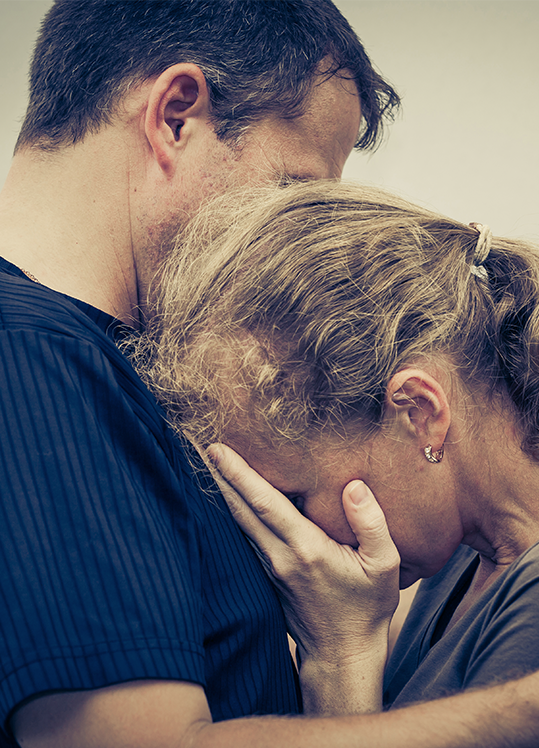 Dr. Mary Jane Minkin’s office is about two hours from my home but I’d travel even farther to call her my doctor. I met Dr. Minkin about four years ago, when a leading pharmaceutical company invited me to participate in its campaign about vaginal atrophy. As Clinical Professor of Obstetrics and Gynecology at Yale University School of Medicine, and one of the country’s leading experts on women’s health and wellness, Dr. Minkin is a consultant to the company, as she is to many other brands that target perimenopausal and menopausal women.
Dr. Mary Jane Minkin’s office is about two hours from my home but I’d travel even farther to call her my doctor. I met Dr. Minkin about four years ago, when a leading pharmaceutical company invited me to participate in its campaign about vaginal atrophy. As Clinical Professor of Obstetrics and Gynecology at Yale University School of Medicine, and one of the country’s leading experts on women’s health and wellness, Dr. Minkin is a consultant to the company, as she is to many other brands that target perimenopausal and menopausal women.
Today, Dr. Minkin talks to us about men and menopause.
![]()
FabOverFifty: What are the major ways you’ve seen menopause affect a woman’s relationship with her partner?
Dr. Minkin: “Menopause can emotionally and physically affect a woman’s relationship with her partner. It can significantly disrupt sleep, and if a woman is sleep deprived, she isn’t going to be too happy, or ‘chipper’ in spirit. The sleep disruptions can affect her partner directly. She may throw covers off at night, and may wake up her partner in the process.

“I always recommend sleeping in a very cool bedroom, even in the winter, and to sleep under an electric blanket with dual controls so your partner doesn’t freeze! Also make sure you’re using a remedy to help you sleep. Many are available.
“Lack of sleep can lead to mood or cognitive disruptions, although there is some evidence that hormonal changes can directly affect mood and cognition. There’s also a body of literature that shows a woman may experience depression as a result of decreasing lower estrogen levels, particularly if she’s had a history of depression.
“Hot flashes during the day can be quite disruptive, and external stressors can help precipitate them, so stressing out your partner can lead to a very uncomfortable hot flash.”
 “Physically, many women experience vaginal dryness, which makes sex uncomfortable, but a woman may be too embarrassed to discuss her discomfort and may just say she isn’t interested in having sex to avoid the the subject. This might make her partner think there is something else wrong with their relationship, which can start a bad cycle of decreased intimacy.
“Physically, many women experience vaginal dryness, which makes sex uncomfortable, but a woman may be too embarrassed to discuss her discomfort and may just say she isn’t interested in having sex to avoid the the subject. This might make her partner think there is something else wrong with their relationship, which can start a bad cycle of decreased intimacy.
“A woman also may be experiencing bladder issues, indirectly related to vaginal dryness (‘atrophy’ of genital tissues often affects the bladder), and might start having urinary tract infections and leakage of urine, which may also be embarrassing for her to discuss.”
Many women associate menopause with getting older, and in a society that worships youth, they may feel ‘outdated’ and believe that their husbands might be looking at younger women.
 How do you advise a patient approach the subject of her symptoms with her partner, and how does she benefit from having a discussion?
How do you advise a patient approach the subject of her symptoms with her partner, and how does she benefit from having a discussion?
“It’s really helpful to make sure your partner understands what is distressing you, because then you can start fixing the situation. It’s even more helpful for the suffering woman to get help for her problems, which can be remedied. She should speak to a health care provider, and visit websites such as www.faboverfifty.com, redhotmamas.org, and www.madameovary.com to learn more about menopause. If your provider doesn’t really ‘get’ menopause, go to menopause.org, the website of the North American Menopause society, to find a practitioner near you who does.”
Should women invite their partners to their doctors’ appointments?
“A support person can be very helpful, to remind you of questions you may be forgetting to ask. I remind my patients of the All in the Family episode when Edith was ‘totally discombobulated’ and Archie asked her what was going on. ‘Oh Archie, it’s the change,’ Edith answered. And the ever-understanding Archie replied, ‘Well, get over it.’ I encourage my patients to tell their partners to be more understanding than Archie.

“I always am happy to have partners come to appointments, but if it’s for an annual exam, I’d like the patient to have some private time with me as their practitioner, without the partner present. (One amazing fact: In a relationship in which there is domestic violence, partners will come with their women to make sure they have no time alone with the provider to ‘spill the beans’ that there’s abuse going on). So, if you do come as a couple, make sure the health care provider gets some alone time with you.”
Are there specific activities or exercises that can help a woman’s overcome irritability?
“I always encourage my patients to do a combination of aerobic and strength training to keep fit and to be less irritable. My favorite go-to exercise person is Dr. Miriam Nelson, whose Strong Women exercise series is excellent.”.
What’s one piece of important advice you’d give to a woman’s partner about her during menopause?
“Be an attentive listener. Understand that she’s experiencing significant hormonal changes, after having great levels of estrogen for 30 to 40 years, and there are estrogen receptors on almost every cell in her body. Lots may be changing, and it’s important to make sure she’s under the medical care of someone who listens to her, and helps her with the changes. If she isn’t getting satisfactory advice, help her find someone who will give it to her. There is help available for just about any symptom she may be experiencing.”
Learn which menopause symptoms most plague your FOF ‘sisters’.


0 Responses to “What Your Husband Should Know About Menopause”
CathyLynchLawdanski says:
I’ve experienced all these symptoms! Great post on being open with your spouse so that they understand what is going on!